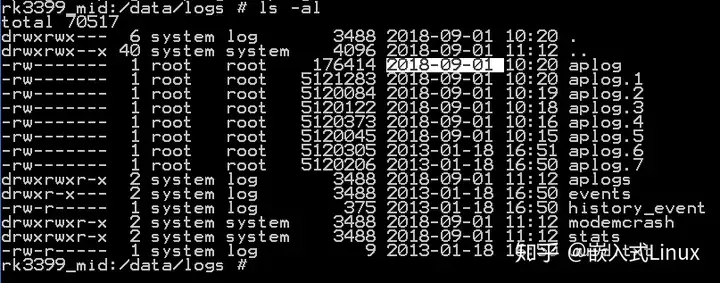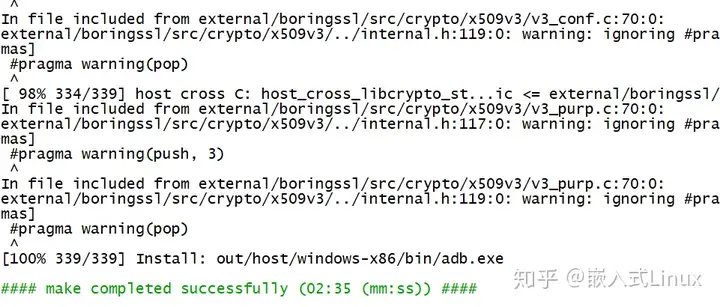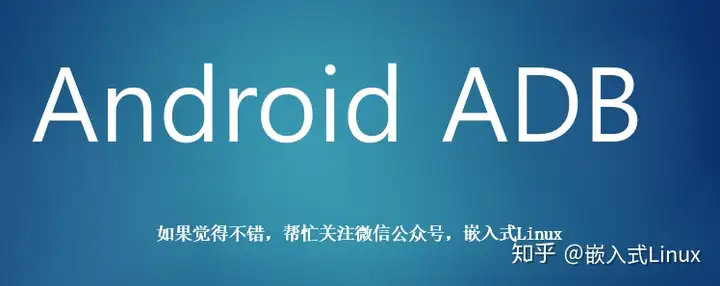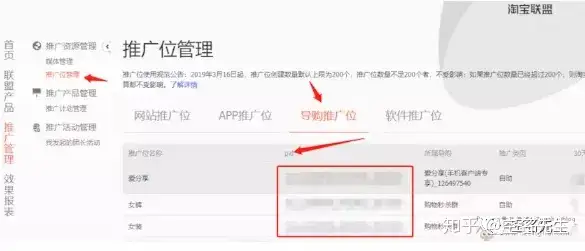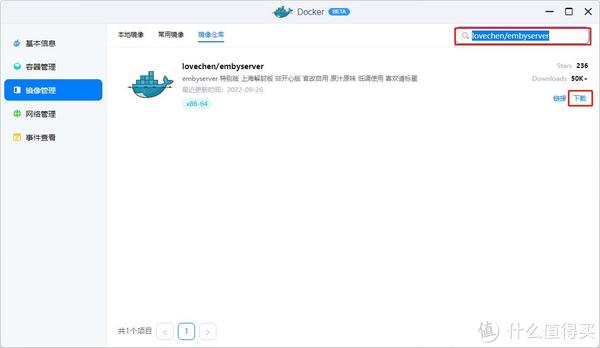扭起屁股得意洋洋
最近,我负责的项目因为临近量产,把之前的userdebug版本关闭,转成了user版本,增加selinux的权限,大家都洋溢在项目准备量产的兴奋和喜悦之中不能自拔
谁知,好景不长,user版本发布之后,各种bug接踵而来,但是因为user版本权限的原因,我们之前保留在/data/logs/下面的日志不能pull出来,定位问题非常困难
不得不想到的解决方案
第一个办法:我们想到的第一个办法就是更改data目录的权限,改成system用户,但是因为data下面的logs目录的文件是root权限,获取日志是需要root权限的,日志还是不能pullg出来。
第二个办法:我想到的第二个办法就是给我们的adb命令增加一个后门,正常我们是adb root获取root权限,我修改成adb aaa.bbb.ccc.root 这样不容易被别人窃取我们的后门,也不至于影响到我们的开发。
梳理Android ADB知识点
所以就加强了adb 的相关知识
google的adb 代码位置在(system/core/adb)目录下面
我上传了一份在github上面,链接如下
ADB是Android系统提供的调试工具,整个ADB工具由三部分组成:adb client、adb service、adb daemon。
1、ADB client
提供HOST端运行的命令
2、ADB service
HOST端上的一个后台进程
3、ADB daemom
DEVICE端(真实的机器或者模拟器)的守护进程
这三部分都是从(system/core/adb)里面编译出来的,我们很多时候去网上下载adb.exe来用,实际上我们的SDK代码下面就有adb,而且代码是可以修改的。
ADB代码位于/system/core/adb目录下,通过查看Android.mk,可以知道,该目录下的代码生成了两个MODULE,分别是adb和adbd, adb client和adb service都是由adb这个可执行文件实现, adb daemon由adbd实现。adb和adbd的一些源代码文件是用同一个的,编译时通过LOCAL_CFLAGS的参数ADB_HOST来区分,这种你中有我我中有你的关系,对于初次接触的朋友们,多少增加了些困扰。理清了ADB几部分的关系,以及源代码的结构,对ADB的认识已经有一个飞越了。
使用方案2来解决问题
代码修改如下
diff —git a/adb/commandline.cpp b/adb/commandline.cpp
old mode 100644
new mode 100755
index 51d828a..32b2c09
— a/adb/commandline.cpp
+++ b/adb/commandline.cpp
@@ –83,6 +83,7 @@ static void help() {
fprintf(stderr, “%s\n“, adb_version().c_str());
// clang-format off
fprintf(stderr,
+ “ADB use for weiqifa nan Product\n“
” -a – directs adb to listen on all interfaces for a connection\n“
” -d – directs command to the only connected USB device\n“
” returns an error if more than one USB device is present.\n“
@@ –1083,6 +1084,7 @@ static bool adb_root(const char* command) {
std::string error;
ScopedFd fd;
+ fprintf(stderr, “weiqifa adb root \n“);
fd.Reset(adb_connect(android::base::StringPrintf(“%s:”, command), &error));
if (!fd.valid()) {
fprintf(stderr, “adb: unable to connect for %s: %s\n“, command, error.c_str());
@@ –1625,12 +1627,12 @@ int adb_commandline(int argc, const char **argv) {
} else if (argc == 2 && !strcmp(argv[1], “-l”)) {
listopt = argv[1];
} else {
– fprintf(stderr, “Usage: adb devices [-l]\n“);
+ fprintf(stderr, “weiqifa Usage: adb devices [-l]\n“);
return 1;
}
std::string query = android::base::StringPrintf(“host:%s%s”, argv[0], listopt);
– printf(“List of devices attached\n“);
+ printf(“weiqifa List of devices attached\n“);
return adb_query_command(query);
}
else if (!strcmp(argv[0], “connect”)) {
@@ –1732,7 +1734,7 @@ int adb_commandline(int argc, const char **argv) {
command = android::base::StringPrintf(“%s:”, argv[0]);
}
return adb_connect_command(command);
– } else if (!strcmp(argv[0], “root”) || !strcmp(argv[0], “unroot”)) {
+ } else if (!strcmp(argv[0], “weiqifa.nan.root”) || !strcmp(argv[0], “unroot”)) {
return adb_root(argv[0]) ? 0 : 1;
} else if (!strcmp(argv[0], “bugreport”)) {
Bugreport bugreport;
diff —git a/adb/services.cpp b/adb/services.cpp
old mode 100644
new mode 100755
index 3b212e9..5a82246
— a/adb/services.cpp
+++ b/adb/services.cpp
@@ –69,7 +69,7 @@ static void service_bootstrap_func(void* x) {
void restart_root_service(int fd, void *cookie) {
if (getuid() == 0) {
– WriteFdExactly(fd, “adbd is already running as root\n“);
+ WriteFdExactly(fd, “weiqifa.nan adbd is already running as root\n“);
adb_close(fd);
} else {
char value[PROPERTY_VALUE_MAX];
@@ –81,7 +81,7 @@ void restart_root_service(int fd, void *cookie) {
}
property_set(“service.adb.root”, “1”);
– WriteFdExactly(fd, “restarting adbd as root\n“);
+ WriteFdExactly(fd, “weiqifa.nan restarting adbd as root\n“);
adb_close(fd);
}
}
@@ –327,7 +327,8 @@ int service_to_fd(const char* name, const atransport* transport) {
void* arg = strdup(name + 7);
if (arg == NULL) return –1;
ret = create_service_thread(reboot_service, arg);
– } else if(!strncmp(name, “root:”, 5)) {
+ } else if(!strncmp(name, “weiqifa.nan.root:”, 17)) {
+ fprintf(stderr, “services adb root”);
ret = create_service_thread(restart_root_service, NULL);
} else if(!strncmp(name, “unroot:”, 7)) {
ret = create_service_thread(restart_unroot_service, NULL);
diff —git a/adb/sockets.cpp b/adb/sockets.cpp
index 63b7df6..1cb0b5e 100644
— a/adb/sockets.cpp
+++ b/adb/sockets.cpp
@@ –418,11 +418,11 @@ asocket* create_local_service_socket(const char* name, const atransport* transpo
#if !ADB_HOST
char debug[PROPERTY_VALUE_MAX];
– if (!strncmp(name, “root:”, 5)) {
+ if (!strncmp(name, “weiqifa.nan.root:”, 17)) {
property_get(“ro.debuggable”, debug, “”);
}
– if ((!strncmp(name, “root:”, 5) && getuid() != 0 && strcmp(debug, “1”) == 0) ||
+ if ((!strncmp(name, “weiqifa.nan.root:”, 17) && getuid() != 0 && strcmp(debug, “1”) == 0) ||
(!strncmp(name, “unroot:”, 7) && getuid() == 0) ||
!strncmp(name, “usb:”, 4) ||
!strncmp(name, “tcpip:”, 6)) {
编译
Android sdk编译请看链接
1、一个是编译生成adb.exe,这个拷贝到windows下面使用
Android 7.1使用 编译指令使用” make host_cross_adb -j40 “
Android 7.0 之前使用 make USE_MINGW=y adb
但是之前要先
source build/envsetup.sh
lunch
建立Android 编译环境
2、编译adbd 服务,这个是烧录到机器里面去,直接编译整个固件就好了
source build/envsetup.sh; lunch rk3399_mid-userdebug; make -j128
adbd 在init.rc里面初始化,具体代码在devices/rockchip/下面找
# for Internet adb
on property:persist.internet.adb.enable=1
setprop service.adb.tcp.port 5555
restart adbd
# for Internet adb
on property:persist.internet.adb.enable=0
setprop service.adb.tcp.port 0
restart adbd
# for telephony function
on property:ro.boot.noril=true
setprop ro.radio.noril true
stop ril–daemon
这一章先大概说下代码,只有写下root的原理~~
如果觉得不错,帮忙关注微信公众号,嵌入式Linux
